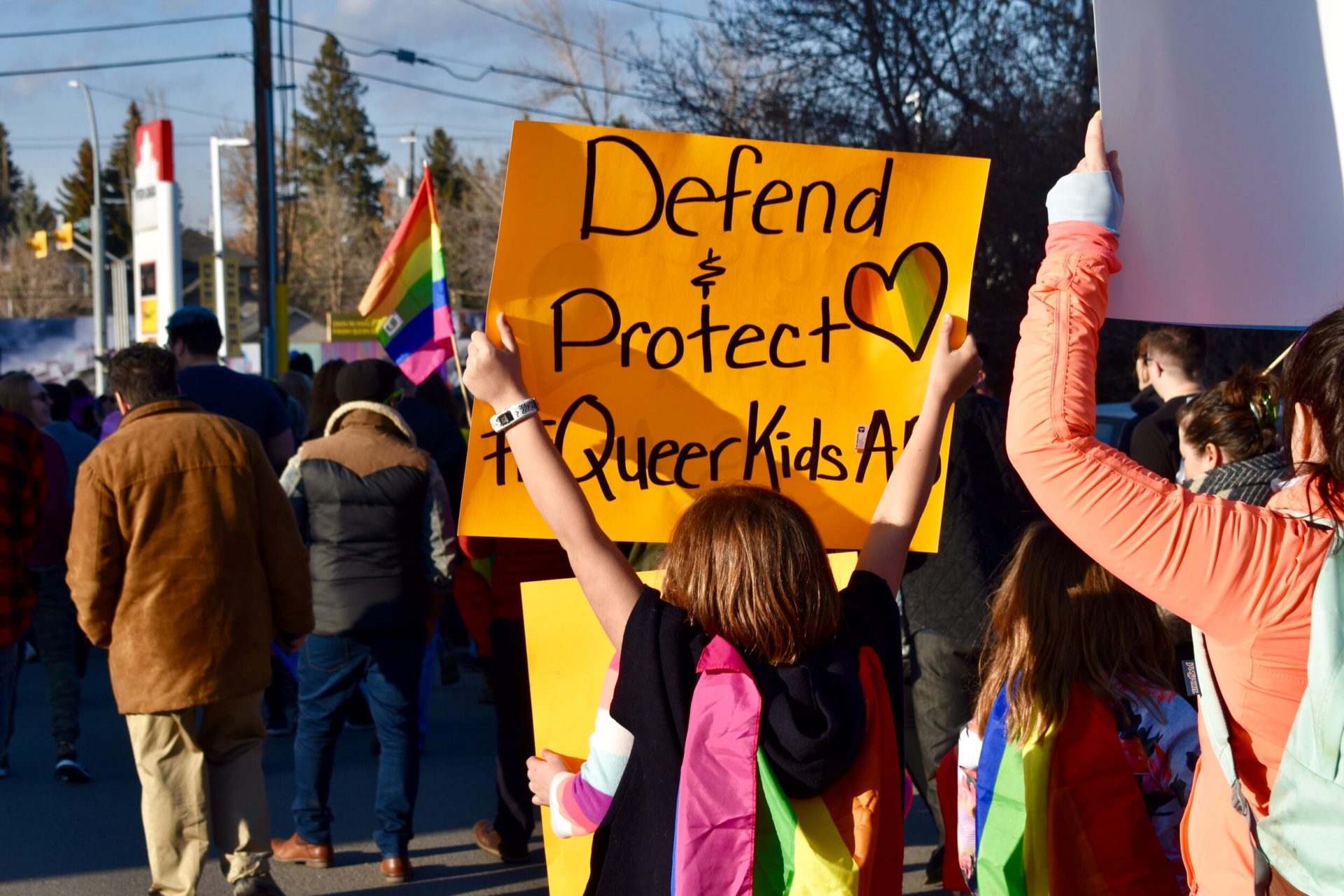
In June, amid the whirlwind of national news stories, the Supreme Court declared two more victories for the LGBTQ+ community.
Grimm v. Gloucester County School Board
The latest victory for the LGBTQ+ community, specifically the trans community, concerned the case of Gavin Grimm, a 16-year-old transgender teenager who was barred from using the boys’ restroom at their local high-school in 2014. Initially, their high-school principal allowed them to use the bathroom of their choice, but soon after, the Gloucester County School Board passed a new policy that restrooms were “limited to the corresponding biological genders.”
In October 2015, Grimm with support from the American Civil Liberties Union (ACLU) filed a lawsuit against the school board claiming that their new policy violated the equal protection clause of the US Constitution and Title IX of federal civil rights law. Grimm initially won their lawsuit in the Fourth Circuit Court of Appeals in 2017; however, the ruling was influenced by the Obama administration’s guidance protecting trans people from discrimination.
But the case didn’t end there. Once President Trump took office, his administration rescinded these Obama-era protections, prompting new litigation. Citing the new executive guidance, the Supreme Court punted the case back to the appeals circuit. The School Board tried to dismiss the case in 2018, but the presiding Judge Arenda Wright Allen refused their appeal, writing Grimm “has sufficiently pled a Title IX claim of sex discrimination under a gender stereotyping theory…” Grimm and the ACLU successfully litigated their case a second time, sending the case to the Supreme Court yet again.
But on Monday, June 28th, the Supreme Court refused to hear the latest iteration of the case and deferred to the ruling of the appeals court. The justices supported the lower-court ruling found the Virginia school board violated equal protection under the laws and Title IX, which prohibits sex discrimination in education.
After a lengthy legal battle, the court’s dismissal finally cements into place that federal law protects transgender people and their right to exist in public space. It is a very big deal that has far-reaching implications of the estimated 0.6% of Americans who identify as trans.
Fulton v. City of Philadelphia
In November 2020, the Supreme Court heard a case concerning two Christian foster care agencies in Philadelphia that refused to screen same-sex couples as potential foster parents. Despite the city-wide shortage of foster families, both agencies – Bethany Christian Services and Catholic Social Services (CSS) – refused to place children in same-sex households on religious grounds. The City of Philadelphia found that the two organizations violated its local nondiscrimination ordinance and told them to comply or would not renew their fostering contracts. Bethany complied, CSS did not, and filed a lawsuit against the city citing that the City of Philadelphia is violating the organization’s First Amendment freedoms.
In July 2018, the Philadelphia district court ruled in favor of the City of Philadelphia, saying that it applied its nondiscrimination clause neutrally and did not violate the agency’s rights. The Third Circuit of Appeals affirmed the lower court’s opinion in April 2019, which teed up arguments at the highest court in the land. The Supreme Court and its 6-3 conservative majority agreed to hear the case in February of 2020.
On June 14, 2021, against the decision of the lower courts, the Supreme ruled unanimously that the city violated the First Amendment rights of same-sex couples by requiring Catholic Services Agency to refuse the placement of children with them. However, while the decision ruled in favor of religious liberty, many judicial experts saw the ruling as notably narrow since it focused on the terms of the City of Philadelphia’s nondiscrimination clause rather than a decisive ruling on religious freedoms. Theoretically, the City of Philadelphia can alter its nondiscrimination ordinance made Catholic foster agencies to screen same-sex couples.
The court’s three most conservative justices – Justices Samuel A. Alito Jr., Clarence Thomas, and Neil M. Gorsuch – said as much in their concurring opinion. “This decision might as well be written on the dissolving paper sold in magic shops,” Justice Alito wrote. “If the city wants to get around today’s decision, it can simply eliminate the never-used exemption power. If it does that, then, voilà, today’s decision will vanish — and the parties will be back where they started.”
So, while the Supreme Court ruled in favor of Catholic Social Services, the nebulous and open-ended decision showed that even a 6-3 conservative majority on the Supreme Court was reluctant to bring about a decisive and far-reaching ruling in favor of religious freedoms.
We are now nearing two decades of LGBTQ+ support by the Supreme Court beginning with Lawrence v. Texas in 2003. That decision ruled that a Texas state law criminalizing sexual contact between consenting adults of the same sex was unconstitutional and invalidated similar laws in a dozen other states. In 2015, the court ruled in Obergefell v. Hodges that state bans on same-sex marriage were unconstitutional under the due process and equal protection clauses of the Fourteenth Amendment. A 2020 decision in Bostock v. Clayton County ruled the 29 states that permitted employment discrimination based upon gender identity or sexual orientation were in violation of Title VII.
Two in three Americans – approximately 67% – support same-sex marriage according to 2020 Gallup polling. A 2020 Public Religion Research Institute (PRRI) survey found strong support for the inclusion of protections against discrimination based on gender identity or sexual orientation. Seventy percent of respondents, with majorities across political, geographic, age, and ideological differences, supported LGBTQ+ equality. Both polls document increasing acceptance when compared to prior years.
With the majority of Americans supporting LGBTQ+ rights, the Evangelical Christian majority deny that the majority of America supports their equality. Even with a 6-3 conservative majority on the Supreme Court – along with scores of conservative appointees in the lower courts – the rights of the LGBTQ+ community continues to become a normalized part of American society. These rulings are victories for the LGBTQ+ community and American society as a whole.

Dr. Don Clardy
Dr. Don Clardy is a tenured professor with 40+ years in higher education.






